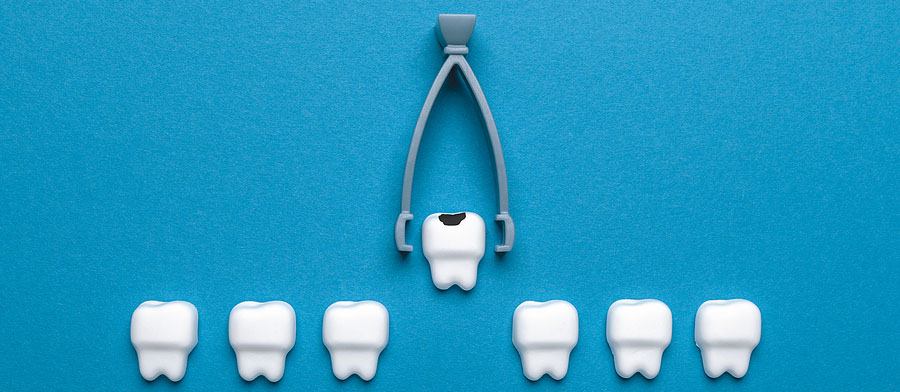Preventive Care
What does preventive care include?
Preventive dental care includes oral exams, teeth cleaning and routine x-rays. There are often limits with your insurance on the number of preventive services you can receive each year.
What are dental sealants?
A sealant is a thin protective coating (made from plastic or other dental materials) that adheres to the chewing surface of your back teeth. They are not a substitute for brushing and flossing, but they can keep cavities from forming. It is ideal to get sealants at an early age.
As soon as a child’s permanent molar teeth come in, he or she should get sealants. Children’s first permanent molars usually come between ages 6 and 9, and their second permanent molars come in between ages 10 and 14.
How often should I get my teeth cleaned?
If you have good oral hygiene habits and a healthy mouth, your dental provider will probably suggest professional teeth cleaning twice per year. Many dental insurance policies will cover two cleanings annually, but few people take full advantage of their benefits.
For patients with periodontal disease (a gum disease that can damage the jawbone if untreated), it’s recommended to see the dentist every three months.
Does NEPA Community Health Care accept my insurance?
Most likely, yes. NEPA Community Health Care accepts the majority of insurances, including PA Medicaid, Medicare, Commercial (i.e. through your employer), Pennie plans and self-pay patients. A Sliding Fee Discount Scale is also available for those who qualify.
To ask about your specific dental coverage, please give us a call at (570) 282-5189.

Regular dental checkups play an important role in your overall health! Beyond preventing cavities, these examinations can help head off gum disease, which may contribute to conditions such as heart attack, diabetes and oral cancer.
Don’t forget that your teeth aren’t the only important part of the mouth – your gums are essential to oral hygiene, as well. Preventive dentistry addresses it all, so you can rest assured that your oral health is in tip-top shape!

Restorative Dentistry
What can I expect after getting a filling?
The numbness caused by local anesthesia should wear off within a couple of hours. Until then, it is best to avoid drinking hot or cold liquids and eating on the side of your mouth that holds your new filling.
Some sensitivity to hot and cold is normal in the first couple of weeks. If it persists beyond that or you have pain when biting, it could signal that an adjustment to your filling is needed so be sure to communicate with your dentist. In the meantime, continue to brush and floss as normal.
Remember that tooth decay is very preventable with good oral hygiene and professional care!
Are there different types of fillings?
Yes, there are two broad categories of dental fillings: amalgam (metal) and composite (tooth-colored) fillings.
Amalgam: The classic “silver” filling is an effective, long-lasting treatment for dental decay. Amalgam, or silver, fillings are made with mercury, silver, tin and copper.
Composite: A popular choice for those who do not want their fillings to show, composite is a mixture of plastic and glass, which actually bonds to the rest of the tooth. Composites are more expensive than amalgam fillings, but the newer materials can hold up almost as long.
What are symptoms of a cavity?
The following symptoms could indicate a cavity and definitely signal a visit with your dental provider:
- Sensitivity to hot, cold and sugary foods
- Pain when biting or chewing on a certain tooth
- Getting food stuck in certain spots in your mouth
- A rough, broken or chipped tooth
- A dark spot on the surface of the tooth
- General tooth pain
Why do I get cavities even though I brush regularly?
Cavities occur when bacteria from food sits in between the teeth. If not removed with flossing, the bacteria will slowly start to grow and ultimately cause a cavity.
People with dry mouth are also more likely to get cavities because they don’t have enough saliva to neutralize the acid produced when we eat. Over 200 medications can cause dry mouth, including decongestants, antihistamines, blood pressure meds, antidepressants and antianxiety medications. Dry mouth may also be brought on by autoimmune or endocrine disorders, radiation therapy or a bone marrow transplant. If you’re concerned that you may have dry mouth, be sure to speak with your dental provider for tips to help control it!

A dental filling, also called a restoration, is the process of using material to repair teeth that have cavities or that have undergone a root canal. Different materials are used to replace the missing tooth structure.

Exodontia
How long does an extraction take to heal?
Patients who have had a tooth extracted typically need to take at least 48-72 hours to relax afterward so the treatment area can clot. After that, a patient should be able to return to normal physical activity. The soft tissue will usually fully heal in about 3-4 weeks.
Questions? Don’t be afraid to give your provider a call!
What precautions should I take after an extraction?
Following an extraction, it’s best to avoid a sucking motion of any type like smoking or drinking from a straw.
Consider trying soft and liquid food options (such as soups, mashed potatoes, yogurts, milkshakes or smoothies), and avoid hot drinks, spicy foods, sodas, etc. You should also do warm saltwater rinses to clean the extraction area, as it is not possible to brush the area at first.
How do I know if my extraction is healing properly?
About 3 days after your tooth extraction, your gums will begin to heal and close around the removal site. Roughly 7-10 days after your procedure, the opening left by your extracted tooth should be closed (or almost closed), and your gums should no longer be tender or swollen.
How long will the extraction site bleed?
The most bleeding will generally occur immediately after the extraction, which is why the dentist will place gauze over the area for you to bite down on. This applies pressure and helps stop the bleeding.
In short, the heaviest bleeding subsides quickly. However, in some cases, the extraction site may ooze a little on and off for 12 – 24 hours following the extraction. This is completely normal and no cause for alarm.
What are signs that something is wrong?
Be sure to carefully follow your dentist’s recommendations and instructions to avoid potential problems after an extraction. Most extraction sites heal just fine without further treatment but, occasionally, there can be complications. If you experience any of the symptoms below, reach out to your dentist and have him/her check the area.
- Pain and discomfort beyond the first few days of healing
- Severe swelling beyond 48 hours after the extraction
- Nausea or vomiting
- Fever in the face, neck or body
- Bleeding excessively (mouth filling with blood)
The biggest risk after an extraction is the development of an infection. However, other issues like a dry socket could also develop and prevent proper healing if left untreated. With any abnormal symptom, it’s best to reach out to your dentist for advice.

Exodontia, or dental extractions, are sometimes necessary and simply cannot be avoided. The procedure is more common than ever before and is considered a much better option than other restorative treatments.
There are many reasons why you would need a dental extraction, including tooth decay, damage or serious injury. The dentist will simply pull the tooth to ensure that it does not cause damage to your other teeth or gums, preserving your overall oral health.

Limited Prosthodontics
Are there different types of dentures?
Yes, there are two types of dentures: Complete (ones that replace all teeth) and partial (replacing some teeth).
Complete dentures rest on the gums that cover the jawbones whereas partial dentures attach to the teeth that are still present, cover them and rest on the gums and bone where the teeth are missing.
How will I know if my denture needs to be adjusted?
Over time, adjusting the denture may become necessary (whether partial or complete). As you age, your mouth naturally changes, which can affect the fit of the denture. For example, bone and gum ridges can recede or shrink, resulting in a poorly fitting denture.
Dentures that do not fit properly should be adjusted by your dentist since they can cause various problems, including sores or infections. See your dentist promptly if your denture becomes loose, and be sure to maintain your regular checkups.
What is a dental crown?
A crown is a full surface covering which covers the whole tooth. Crowning is used in order to rebuild the tooth to its full size in situations where a large amount of tooth structure has been damaged or lost.

Prosthodontics relates to all dental procedures that involve repairing or replacing missing teeth with prosthetics. This includes things like dental crowns, partials, bridges and dentures.

Pediatrics
When should my child have their first dental visit?
“First visit by first birthday” is the general rule. To prevent dental problems, your child should see a dentist when their first tooth appears, usually between 6 and 12 months of age.
Are x-rays safe for my child?
X-rays are a routine part of dental visits for adults. However, the idea of exposing a child to radiation is a completely normal concern for parents. Rest assured, the risks associated with this very small amount of radiation are virtually non-existent. Our office uses digital x-rays which are even safer than traditional x-rays.
Is taking care of baby teeth important if they're just going to fall out anyway?
We hear this question a lot! What is the reason for putting so much effort into taking care of your child’s baby teeth when they’re only going to fall out?
Baby teeth matter just as much as adult teeth because they pave the way for how teeth will form in adulthood. Rest assured that your efforts are not wasted – the way you care for your child’s baby teeth can have a long-lasting impact on their adult teeth!
If my child gets a cavity in a baby tooth, should it be filled?
In most cases, yes. Cavities are infections, and fixing cavities on baby teeth will be recommended if it is a significant infection. Cavities can pass from tooth to tooth, just like a cold. So, if you leave a cavity in a tooth long enough, your child’s other teeth can also start to get cavities.
What if my child is afraid of the dentist?
We understand that most children are reluctant to visit the dentist. Our kind and compassionate staff of providers and dental assistants treat each child as an individual and understand that a little patience goes a long way. Our goal is to make your child’s visit a positive experience!

Pediatric Dentistry is dedicated to the oral health of children from infancy through adolescence. Dentists have the experience and qualifications to care for a child’s teeth, gums and mouth throughout the various stages of their childhood.

